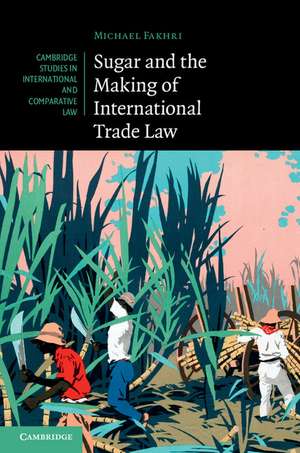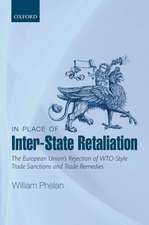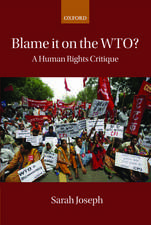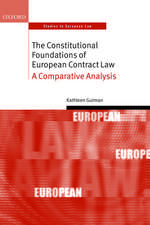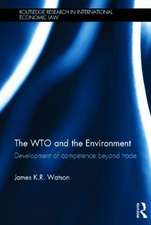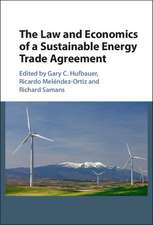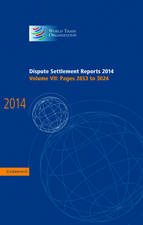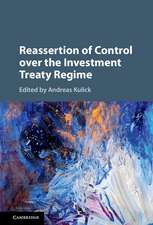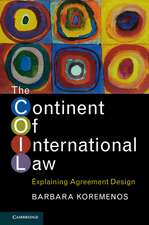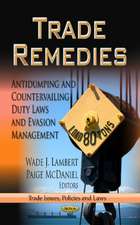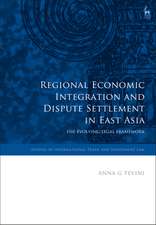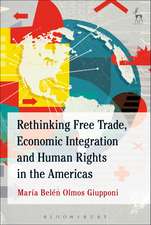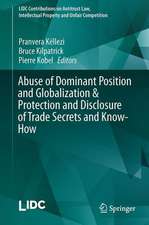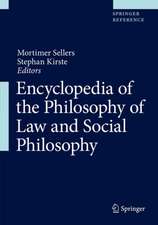Sugar and the Making of International Trade Law: Cambridge Studies in International and Comparative Law, cartea 114
Autor Michael Fakhrien Limba Engleză Hardback – 26 noi 2014
| Toate formatele și edițiile | Preț | Express |
|---|---|---|
| Paperback (1) | 284.56 lei 6-8 săpt. | |
| Cambridge University Press – 24 mai 2017 | 284.56 lei 6-8 săpt. | |
| Hardback (1) | 482.07 lei 6-8 săpt. | |
| Cambridge University Press – 26 noi 2014 | 482.07 lei 6-8 săpt. |
Din seria Cambridge Studies in International and Comparative Law
-
 Preț: 201.40 lei
Preț: 201.40 lei - 9%
 Preț: 731.44 lei
Preț: 731.44 lei -
 Preț: 231.74 lei
Preț: 231.74 lei -
 Preț: 200.34 lei
Preț: 200.34 lei -
 Preț: 231.88 lei
Preț: 231.88 lei -
 Preț: 176.91 lei
Preț: 176.91 lei - 9%
 Preț: 661.95 lei
Preț: 661.95 lei -
 Preț: 233.37 lei
Preț: 233.37 lei -
 Preț: 230.94 lei
Preț: 230.94 lei - 9%
 Preț: 765.91 lei
Preț: 765.91 lei -
 Preț: 237.53 lei
Preț: 237.53 lei - 9%
 Preț: 773.85 lei
Preț: 773.85 lei -
 Preț: 329.28 lei
Preț: 329.28 lei - 14%
 Preț: 793.62 lei
Preț: 793.62 lei -
 Preț: 238.11 lei
Preț: 238.11 lei - 9%
 Preț: 596.72 lei
Preț: 596.72 lei - 9%
 Preț: 593.37 lei
Preț: 593.37 lei -
 Preț: 209.41 lei
Preț: 209.41 lei - 9%
 Preț: 917.66 lei
Preț: 917.66 lei -
 Preț: 239.72 lei
Preț: 239.72 lei - 11%
 Preț: 639.92 lei
Preț: 639.92 lei -
 Preț: 350.03 lei
Preț: 350.03 lei - 14%
 Preț: 784.65 lei
Preț: 784.65 lei -
 Preț: 310.86 lei
Preț: 310.86 lei -
 Preț: 358.28 lei
Preț: 358.28 lei - 14%
 Preț: 698.80 lei
Preț: 698.80 lei - 14%
 Preț: 700.76 lei
Preț: 700.76 lei -
 Preț: 284.78 lei
Preț: 284.78 lei - 14%
 Preț: 896.01 lei
Preț: 896.01 lei -
 Preț: 288.04 lei
Preț: 288.04 lei - 11%
 Preț: 642.00 lei
Preț: 642.00 lei - 14%
 Preț: 731.56 lei
Preț: 731.56 lei - 14%
 Preț: 721.96 lei
Preț: 721.96 lei - 9%
 Preț: 661.91 lei
Preț: 661.91 lei - 14%
 Preț: 757.69 lei
Preț: 757.69 lei - 9%
 Preț: 662.74 lei
Preț: 662.74 lei - 14%
 Preț: 760.17 lei
Preț: 760.17 lei - 14%
 Preț: 703.42 lei
Preț: 703.42 lei -
 Preț: 363.28 lei
Preț: 363.28 lei -
 Preț: 464.33 lei
Preț: 464.33 lei -
 Preț: 324.79 lei
Preț: 324.79 lei - 14%
 Preț: 785.32 lei
Preț: 785.32 lei
Preț: 482.07 lei
Preț vechi: 541.64 lei
-11% Nou
Puncte Express: 723
Preț estimativ în valută:
92.24€ • 96.32$ • 76.17£
92.24€ • 96.32$ • 76.17£
Carte tipărită la comandă
Livrare economică 15-29 aprilie
Preluare comenzi: 021 569.72.76
Specificații
ISBN-13: 9781107040526
ISBN-10: 1107040523
Pagini: 278
Ilustrații: black & white illustrations
Dimensiuni: 152 x 229 x 17 mm
Greutate: 0.52 kg
Editura: Cambridge University Press
Colecția Cambridge University Press
Seria Cambridge Studies in International and Comparative Law
Locul publicării:New York, United States
ISBN-10: 1107040523
Pagini: 278
Ilustrații: black & white illustrations
Dimensiuni: 152 x 229 x 17 mm
Greutate: 0.52 kg
Editura: Cambridge University Press
Colecția Cambridge University Press
Seria Cambridge Studies in International and Comparative Law
Locul publicării:New York, United States
Cuprins
Part I. Prologue: 1. International institutions as part of the history of agriculture; 2. Histories as context; Part II. The 1902 Brussels Convention and the Beginnings of Modern Trade Law: 3. Free trade as an imperial project; 4. The institutionalization of international trade; Part III. The 1937 ISA, Cuba and the League of Nations: 5. Economic aspects of the League of Nations; 6. Developing a Cuban State and renegotiating American imperialism; Part IV. The 1977 ISA and the Implications of Institutionalization: 7. The postwar institutional landscape; 8. The 1977 ISA as an exemplar of postwar ICAs; Part V. Epilogue: 9. Using the past to open up the future of trade law.
Recenzii
'… interesting … should appeal to scholars from a number of disciplines including historians, political scientists and economists.' Alan Swinbank, International Trade Law and Regulation
'This is an excellent contribution to the literature on international trade law. It is remarkable in terms of its rigorous analysis of an important and neglected dimension of its history, the fresh perspective it offers on established conceptions about free trade and in terms of its broader implications for the future of the trade regime. The text assumes a significant level of familiarity with literature on international trade law. It is likely to be of interest to academics in the field or in related areas such as international development and institutional studies. It is also an informative and thought-provoking read for those involved in trade practice and policy-making.' Anna Chadwick, European Journal of International Law
'The main thesis of Michael Fakhri, a professor of international trade and food law at the University of Oregon, is that international law fundamentally contributed to the transformation of a simple plant into a global product. With a fine use of history, he explores the role of three international treaties in the expansion of sugar-related industrial interests: the Brussels Sugar Convention of 1902 and two international commodity agreements - the International Sugar Agreements (ISAs) of 1937 and 1977 … a critical attempt to make sense of change over time using three case studies to explore one product in detail.' Sergio Puig, The American Journal of International Law
'Sugar and the Making of international Trade Law provides a great addition to undergraduate or graduate courses on food justice, global studies, international trade, economic concepts, and postecolonialism. Scholars and advocates will relish its topical insights, while teachers will enjoy working through its approach with students.' Ernesto Hernández-López, Gastronomica
'This is an excellent contribution to the literature on international trade law. It is remarkable in terms of its rigorous analysis of an important and neglected dimension of its history, the fresh perspective it offers on established conceptions about free trade and in terms of its broader implications for the future of the trade regime. The text assumes a significant level of familiarity with literature on international trade law. It is likely to be of interest to academics in the field or in related areas such as international development and institutional studies. It is also an informative and thought-provoking read for those involved in trade practice and policy-making.' Anna Chadwick, European Journal of International Law
'The main thesis of Michael Fakhri, a professor of international trade and food law at the University of Oregon, is that international law fundamentally contributed to the transformation of a simple plant into a global product. With a fine use of history, he explores the role of three international treaties in the expansion of sugar-related industrial interests: the Brussels Sugar Convention of 1902 and two international commodity agreements - the International Sugar Agreements (ISAs) of 1937 and 1977 … a critical attempt to make sense of change over time using three case studies to explore one product in detail.' Sergio Puig, The American Journal of International Law
'Sugar and the Making of international Trade Law provides a great addition to undergraduate or graduate courses on food justice, global studies, international trade, economic concepts, and postecolonialism. Scholars and advocates will relish its topical insights, while teachers will enjoy working through its approach with students.' Ernesto Hernández-López, Gastronomica
Notă biografică
Descriere
Michael Fakhri uses the transnational history of sugar to tell the multilateral institutional history of trade law.
